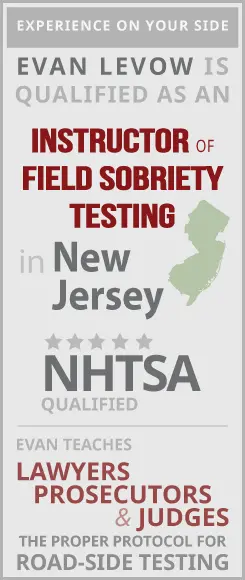Can You Skip Your First Court Appearance, the Arraignment?
What happens after a DWI arrest?
The time period following your arrest for DWI can be uncertain. If you have never been arrested, you may have questions about the process you must complete. Your very first step should be to hire an experienced and knowledgeable DWI attorney. He or she can assist you every step of the way by offering solid legal advice and by understanding your personal situation. There is no substitute for having an excellent lawyer on your side.
Here are other important steps you need to understand:
Arraignment:
An arraignment is a proceeding that usually occurs within a few days of your arrest. If you hire an attorney prior to your arraignment, you may not need to be present for the appearance. (Keep in mind that some judges require your presence whether you have a lawyer or not.)
Pre-trial Conference:
You may have only one court date after your arraignment to decide whether you will go to trial or resolve your case by entry of a plea. This court date, called a pre-trial conference, is typically within three or four weeks of the date of your arrest. If the police reports are available to your attorney before the pre-trial conference and all of the defenses to the charges are determined, you will either set your trial date or enter a plea. However, most of the time, a postponement is required to obtain all the information about your case, determine your best defenses and consult with potential experts. The next court date will likely be within about seven weeks of your arrest.
Suppression Hearing:
The Court may suppress some or all of the evidence against you if your constitutional rights have been violated. Your attorney may file motions to suppress after receiving the “discovery” (documents and other information regarding your arrest) or police reports regarding your arrest. The motion is often heard just before the trial.
Trial:
New Jersey does not allow for jury trials in DWI matters. Your case will be heard before a Municipal Court judge. Resolution of your case, whether by trial or plea, is supposed to happen within 60 days after your arrest. There are variations to this, but the courts attempt to strictly follow this rule.
Sentencing:
The Court imposes a sentence after a conviction at trial or after a plea is accepted and entered. In addition to license suspension, fines and alcohol classes, sentences may also include jail time and community service.
Appeal:
Cases that go to trial in the Municipal Court may still be successful on appeal. You have 20 days from a negative ruling to appeal to the Law Division of the Superior Court in the county where you are convicted.
Post Conviction Relief:
If you are now facing a second or greater conviction, you may wish to challenge a prior conviction after you are arrested for a new DWI. If you didn’t have a lawyer in your previous case, or were not properly represented by your attorney, you can attempt to make a challenge to that original court to have that conviction overturned.
What Your Lawyer Needs to Know to Help You.
Medical conditions, prior injuries, dental problems: All of life’s wear-and-tear can be important for your defense. If you are interviewing a potential DWI defense lawyer who does not use a questionnaire to elicit your prior medical history or ask probing questions about your physical condition, you may want to consider a different attorney.
Certain medical and dental conditions make a subject unsuitable for breath testing. Breath-testing machines are designed to “read” alcohol molecules that come from deep lung air. This “reading” is supposed to approximate the alcohol level in your blood. Unfortunately, the machine does not differentiate between the molecules of alcohol in the deep lung air and the alcohol molecules that are trapped in the mouth in dentures, bridges and other dental work. Alcohol molecules can also be in your mouth if they are brought up from the stomach due to a belch or esophageal reflux episode.
Other medical conditions are important for attacking supposedly poor performance on Field Sobriety Tests. These balance and coordination exercises, through which officers attempt to judge someone’s natural abilities by asking him or her to perform unnatural maneuvers, can be greatly impacted by prior injuries or conditions. Being flat-footed, having torn cartilage in a knee or suffering from any number of other physical ailments can affect a person’s ability to perform these roadside tests.
Whether or not you currently suffer from any medical conditions or ailments, you should list all prior injuries, significant illnesses, accidents or medical conditions for your lawyer to consider.
Why Fight My Case?
If you go to court and plead guilty to a DWI, there is a 100 percent chance that the judge will find you guilty of DWI and a 100 percent chance you will have a DWI conviction on your permanent record. If you plead guilty there is a chance you could lose your driving privileges, could be facing jail time, and will be fined and surcharged thousands of dollars.
However, fighting your case with a qualified lawyer means that the lawyer should do everything reasonably possible to positively affect the outcome. Fighting your case means that the prosecutor may not be able to get all the witnesses or evidence the state needs to convict you. Fighting your case means you have a chance.
There are often significant legal reasons to fight your case. Perhaps the officer didn’t have a valid legal reason for stopping you in the first place and the evidence gathered should be suppressed. Perhaps the breath machine is out of calibration and your .09 is really a .07. Maybe your blood sample clotted or fermented and produced an inaccurately high reading. These things will only be known if you fight the pending charges.
You may choose to fight your case in an attempt to avoid the severe consequences of a conviction. New Jersey does not have a pre-trial diversionary program or hardship license. If you are convicted of DWI, you may lose your license. You may also go to jail. Furthermore, the consequences of a DWI conviction may affect you for many years to come. Finally, you face thousands of dollars in surcharges if convicted. For first and second offenders, a $3,000 surcharge is levied against you. For a third offense, you will be surcharged $4,500. (These surcharges are in addition to your insurance company’s surcharges.)
Whether you are convinced of your own innocence or seek to hold the state to its burden of proving guilt beyond a reasonable doubt, there are good reasons to fight your DWI charge.
Hire a DWI attorney who will fight for you. Hire the best lawyer you can afford.
We are aggressive DWI trial attorneys. Arrest does not equal conviction.


